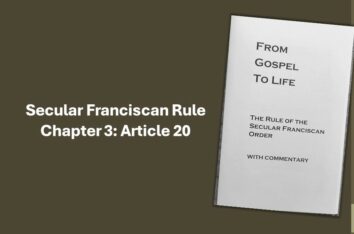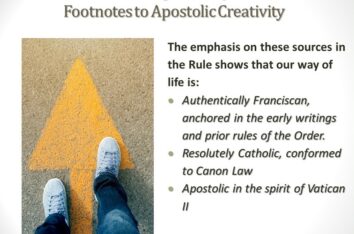- It helps us to know ourselves better.
- It provides a vehicle for saying HELP and THANK YOU.
- It helps us organize our thoughts and understand what they mean.
- It enables us to take time out regularly to make sense of our lives
- It provides the space and time to see what God is saying to us through all the events in our lives.
- It encourages us to spend more time with Scripture and to record our insights.
- It records our personal relationship with God and provides a way for God to speak to our hearts.
- If you write in your journal often your journal will reveal trends or clear words from the Lord that have the potential of changing your heart.
- A journal grows more powerful as it is used. The more we journal the more it reveals to us.
The purpose of journal writing is…
· for discovery- not a justification for “my way.”
· It is a source of growth-not for standing still.
· It helps to clarify our thoughts, wishes, responses, and prayers.
· It is a tool for helping us realize and meet the questions of our lives.
· It can assist you in seeing possibilities and choices
· It helps us in finding patterns of our responses and choices- some of which may be automatic in the way we respond
General directions in journal writing
· Journal writing is NOT an autobiography. It is ideas, dialog with God, reactions to situations, etc.
· A spiritual journal is for you alone! If you have the expectation that someone will see the contents of your journal, your writing will change to meet another’s expectations. It is for your eyes only!
· Good journal writing is a dialog with God. That means it can be prayer at times but many times, we tell God our inmost secrets and then wait to listen.
· We must be brutally honest in our writings. There is no one to impress. God knows all and loves us furiously. We just have to sometimes peel off our layers of defense and trust in Him.
· Review and re-read your entries periodically to find commonalities and to look at yourself dispassionately when you are not in that moment, crisis, or emotionally involved.
· If journaling about scripture or another occurrence in your life, identify the “hot button” issue or what triggers a response from you and bring that to prayer and your journal. Try to find out, the “why” you react the way you do, what its meaning for you, and how you respond.
· Share with your Spiritual Advisor/Director the issues that you find difficult in your journal.
What you need:
· an empty notebook or journal. Find something without pictures, quotes, etc to distract you. The plainer the better. Keep the notebook securely so that no one but you has access to you.
· a pen
· a quiet place for a quiet time when you are fresh and not tired.
· a bible or spiritual classic
· a safe place to keep your journal since it is “for your eyes only.”
Process: Pray, Write, Read, Reflect
· In quiet/collect yourself to be open to hear God’s responses to you.
· Begin with a prayer (I suggest Francis’ Prayer before the Crucifix prayed slowly and quietly followed by your own request to the Holy Spirit to guide you.)
· Then just write. Write what troubles you, what excites you, what surprises you, your thoughts. Share with God.
· Don’t worry about grammar, spelling, or handwriting. This is between you and God.
· Reflect on older writings periodically. Bring to prayer.
For Further Reference:
https://fscaston.org/journaling/
Harry J. Cargas and Radley, Roger J. “Keeping a Spiritual Journal.” Garden City, N.Y.:Doubleday and Co. 1981. (This book is out of print)
Examples of Spiritual Journals:
Gabrielle Bossis’ He and I;
Gaston Courtois’ When the Lord Speaks to Your Heart
Helena Burns’ He Speaks to You;
Jean LaFrance’s Pray to Your Father in Secret
The Autobiography of a Soul
Interior Castle
Divine Mercy in My Soul
Thank you to
Francine Gikow, ofs
National Formation Commission-OFS USA
++++++++++++++++++++
Redacción de diarios espirituales
El propósito de escribir un diario es …
• Para el descubrimiento, no una justificación para “mi manera” de hacer las cosas
• Es una fuente de crecimiento, no para quedarse quieto.
• Ayuda a aclarar nuestros pensamientos, deseos, respuestas y oraciones.
• Es una herramienta para ayudarnos a darnos cuenta de y afrontar las preguntas de nuestra vida.
• Puede ayudarlo a ver posibilidades y opciones.
• Nos ayuda a encontrar patrones de nuestras respuestas y opciones, algunas de las cuales pueden ser automáticas en la forma en que respondemos.
Instrucciones generales en la escritura de un diario
• Escribir un diario NO es escribir una autobiografía. Son ideas, diálogo con Dios, reacciones a situaciones, etc.
• ¡Un diario espiritual es sólo para usted! Si tiene la expectativa de que alguien vea el contenido de su diario, su escritura cambiará para cumplir con las expectativas de otra persona. ¡Es solo para sus ojos!
• La buena redacción de un diario es un diálogo con Dios. Eso significa que a veces puede ser oración, pero muchas veces le contamos a Dios nuestros secretos más íntimos y luego esperamos escuchar.
• Debemos ser brutalmente honestos en nuestros escritos. No hay nadie a quien impresionar. Dios lo sabe todo y nos ama con furia. A veces tenemos que quitarnos nuestras capas de defensa y confiar en Él.
• Revise y relea sus escritos periódicamente para encontrar puntos en común y para mirarse desapasionadamente cuando no se encuentre en esa situación, crisis o esté involucrado emocionalmente.
• Si está escribiendo en un diario sobre las Escrituras u otro acontecimiento en su vida, identifique el problema del “tema candente” o lo que desencadena una respuesta suya y llévelo a la oración y a su diario. Trate de averiguar el “por qué” reacciona de la forma en que lo hace, cuál es su significado para usted y cómo responde.
• Comparta con su Consejero / Director espiritual los temas que encuentre difíciles en su diario.
Que necesita:
• un cuaderno o diario en blanco. Encuentre algo sin imágenes, citas, etc. que le distraigan. Cuanto más sencillo, mejor. Mantenga seguro el diario para que nadie más que usted tenga acceso.
• un bolígrafo
• un lugar tranquilo para momentos de tranquilidad cuando no esté cansado.
• una biblia o un escrito espiritual clásico
• un lugar seguro para guardar su diario, ya que es “solo para sus ojos.”
Proceso: rezar, escribir, leer, reflexionar
• En silencio, compórtese para estar abierto a escuchar las respuestas de Dios.
• Empiece con una oración (Sugiero la oración de Francisco ante crucifijo. Reza lenta y silenciosamente seguida de su propia solicitud al Espíritu Santo para que lo guíe).
• Entonces simplemente escriba. Escriba lo que le preocupa, lo que le emociona, lo que le sorprende, sus pensamientos. Comparta con Dios.
• No se preocupe por la gramática, la ortografía ni la caligrafía. Esto es entre usted y Dios.
• Reflexione periódicamente sobre los escritos más pasados. Llévelos a la oración.
Recursos:
https://pezdepapel.com/2020/como-llevar-un-diario-espiritual/
Ejemplo de un diario espiritual: El Castillo interior de Santa Teresa de Jesús
http://www.cervantesvirtual.com/obra-visor/el-castillo-interior-o-las-moradas–0/html/
Gracias a
Francine Gikow, ofs
National Formation Commission-OFS USA
Chair, National Formation Commission


